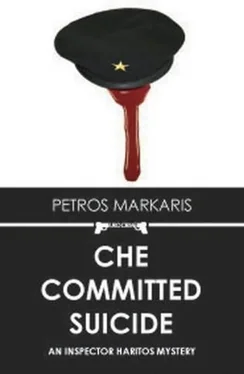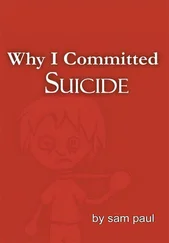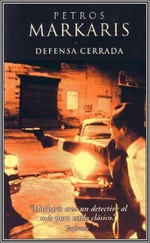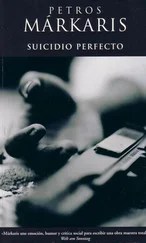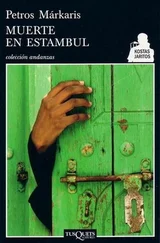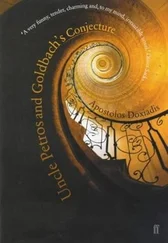
Petros Markaris
Che Committed Suicide
A book in the Inspector Costas Haritos series, 2009
Translated from the Greek by David Connolly
Alles was im Subjekt ist, ist im Objekt, und etwas mehr; alles was im Objekt ist, ist im Subjekt, und etwas mehr .
What exists in the subject also exists in the object, and something more; what exists in the object also exists in the subject, and something more.
GOETHE
In memory of my mother, Tassoula
The cat sat opposite me on the park bench staring at me. I always found it there in the afternoon straddled over the back of the bench. The first few days, it stared at me suspiciously, ready to take to its legs if I made any move towards it. When it was sure that I couldn’t care less about it, it stopped paying any attention to me and no longer bothered to disturb itself on my account. In this way, we implemented a policy of good neighbourly relations. It never occupied my bench and, on the few occasions that I was the one to arrive first, I always respected its bench and would leave it free. It was an alley cat, but not the usual orange colour of pedigree alley cats. Its fur was a kind of pinstripe greyish black, like the suits worn at police balls or at funerals. Black ones are invariably reserved for weddings.
Adriani was sitting beside me, knitting away. Since that fatal evening when I had had the bright idea to save Elena Koustas, using my chest to stop the bullet fired by Makis, her adopted son, my life had changed radically. First I had spent eight hours in the operating theatre, then a month and a half in the hospital and now I still had two thirds of my three-month sick leave before me. My dealings with the Homicide Department had been suspended until further notice. I hadn’t been in to see them even once since I came home. My two assistants, Vlassopoulos and Dermitzakis, came round every other day at first, then they stopped the visits and limited themselves to phone calls, till in the end they ceased all contact. Ghikas came only once to the hospital, together with the Secretary General from the Ministry, who can’t stomach me, but on that day he was all smiles and praise for my bravery. In the end, to dragging my steps from the house to the park and from the bedroom to the sitting room, like a Palestinian placed under house arrest by the Israelis.
‘What’s for dinner tonight?’
Not that I was particularly bothered. I still hadn’t got my appetite back and every mouthful stuck in my throat. But I made a thing about it because it helped me to break the monotony.
‘I’ve boiled you a nice bit of chicken and I’ve made a noodle soup.’
‘Chicken again? I had chicken the other day.’
‘It’s good for you.’
‘And why exactly is it good for me, Adriani? I had a perforating wound in the chest, not a punctured stomach.’
‘It’ll build up your strength. I know what I’m talking about,’ she said definitively, without even lifting her eyes from her knitting.
I heaved a sigh and recalled with nostalgia my days in intensive care, when my loved ones came by to pay their respects for one hour in the morning and one hour in the evening and in-between left me in peace. For the nine days I was in there, surrounded by a white ceiling and two white curtains, I experienced the same ritual twice each day. Fist Adriani would come in.
‘How are you feeling today, Costas dear?’ she would ask with a smile like a flickering candle-flame.
I would try to react to this current of distress that penetrated my cubicle and I pretended to be in better spirits that I actually was. ‘Just fine. Waste of their time keeping me in here, there’s nothing wrong with me,’ I would reply, even though I felt much safer in intensive care.
A restrained sorrowful smile and a slight nod of her head convinced me once again that no one can escape their fate. Then she would sit on the only chair, take my hand and fix her gaze on me. When she went, as soon as the half-hour was up, she left me with my hand numb through lack of movement and with the conviction that I was going to kick the bucket some time in the next twelve hours.
If Adriani led me to make out that I was fine, Katerina, my daughter, had me going in the opposite direction. She would breeze in smiling all over her face. ‘Good for you, you’ll soon be up and about,’ she’d say. ‘You’re looking better each day.’
‘Looking better!’ I’d answer her indignantly. ‘I’m a wreck. I’m hurting, I’m worn out and all I want to do is sleep.’
Her reply was a warm kiss on the cheek and a tight hug that made my wound hurt even more.
The last to come in was Eleni, my sister-in-law. She’d almost swum from the island where she lived when Adriani had told her that they’d brought me to the hospital half-dead.
Eleni belonged to that category of people who cheer you up by relating the sorry plight of others to you. So she’d begin by counting out one by one all those who were sick in her family, starting with her daughter, who suffered from an allergy and had to be careful of what she ate and how she dressed, then moving on to her husband, who had high blood pressure and who went around with bottles of pills in his pocket. Then there was her mother-in-law, who was confined to bed because she had broken her hip and whom she had to clean and change every day, taking it in turns with her sister-in-law. She even threw in a distant cousin, who had come off his motorbike and had been three months in hospital and it was touch and go whether he’d live. Finally, she came out with the moral of it all: ‘So you should be grateful and thank God each day,’ she said as she left.
When, however, Adriani’s half-hour and Katerina’a and Eleni’s quarter of an hour were over, I had all the time to myself until the evening. In the ward, total silence reigned; the nurses were exceedingly discreet and, in general, no one bothered me.
The cat opened its cavernous mouth and yawned majestically. As though it were bored with my presence. I didn’t take offence, I’m equally bored with myself.
‘Shall we be going?’ I said to Adriani, while inside I asked myself why, it would be just as miserable at home.
‘Just a bit longer. The fresh air is good for you.’
‘I meant in case Fanis comes…’
‘Don’t expect him today. From what I recall, he’s on duty.’
It wasn’t that I was anxious to see the doctor, but quite simply I get on well with my daughter’s boyfriend, Fanis Ouzounidis. My relationship with Fanis was in inverse proportion to the course of the Athens Stock Exchange. Whereas it reached a peak and then began to fall, our relationship first reached a low and then began to climb. I’d met him as the cardiologist on duty when I had ended up one night at the General Infirmary with acute ischaemia. I immediately liked him because he was always smiling and full of wisecracks. Until I discovered that he was seeing my daughter and I was furious. In the end, for Katerina’s sake, I reconciled myself more with the idea that he was her boyfriend than with him personally. I felt that he had betrayed my confidence, and when you have come up through the Police Force, the idea of betrayal clings to you like a leech. It was in intensive care that I first felt close to him, and that had nothing to do with medicine. He’d pop in at around twelve, just before lunch, and always with a smile on his face. And every time, he called me something different. From ‘And how are we today, Inspector’ to ‘How’s my future father-in-law, then’ and the ironically intoned ‘Dad!’ This was repeated three or four times a day, and also at night, when he was on duty, and it was combined with discreet questions about how I was getting on, whether I needed anything. I found out about this indirectly, from the nurses, who every so often came out with things like ‘We have to take good care of you, otherwise we’ll have Doctor Ouzounidis after us.’
Читать дальше
